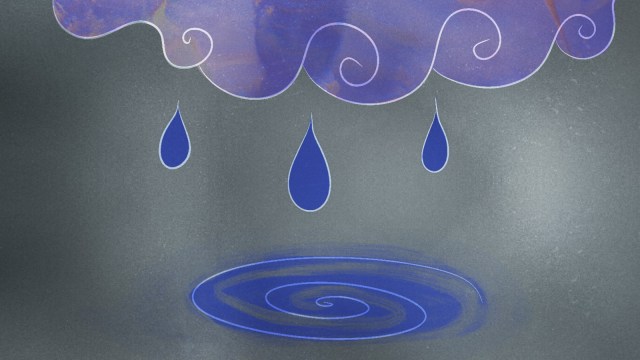How “Gibson’s law” makes it hard to trust experts

- A little learning is a dangerous thing, and there is no one more confident than someone who has read just a little bit about a topic.
- Gibson's law states, "For every PhD there is an equal and opposite PhD." In other words, you can find an expert who will say just about anything.
- Not all disagreements are of equal weight. This is a key point that Pyrrho the Skeptic got wrong.
A little learning is a dangerous thing ;
Drink deep, or taste not the Pierian spring :
There shallow draughts intoxicate the brain,
And drinking largely sobers us again.
It’s one of the most famous lines in poetry, and with it, Alexander Pope hits the nail on the head. We all know that one person who sees themselves as some world authority based on a single article they’ve read. They’re the keyboard preachers and cocksure dilettantes who have spent an afternoon researching a topic, and they’ll tell you exactly how it is. They’re drunk, indeed, on a little learning, and will shout at everyone to let them know.
The fact is that disagreeing with someone is easy. No matter how much of your life you’ve devoted to a subject or how many letters after your name you have earned, it takes only one fool, who’s read one Facebook post, to disagree with you. It’s this which presents the illusion of depth and complexity — as if debate means that there will be no right answer. There are two sides to everything only because saying, “You’re wrong,” doesn’t require any qualifications whatsoever. And yet, to paraphrase Friedrich Nietzsche, muddying the water will not make it deep.
Inferiors and superiors
In his 2014 book, Disagreement, the philosopher Bryan Frances makes a distinction between superiors, inferiors, and peers. Whenever you meet someone, you will be epistemically superior to them in some areas, and they will be superior to you in others. As Frances puts it, “Einstein was your superior when it came to physics and mathematics, but you are his superior when it comes to twenty-first-century popular music (obviously: he died in 1955)”. My editor here at Big Think has a PhD in microbiology, so he is my superior when it comes to bacterial membranes. I like to think I’m his superior when it comes to British pub culture. (Editor’s note: I concede that Jonny is an expert in warm beer and flavorless fish and chips.)
Those who are epistemically superior are more likely to be true in their beliefs — which is to say, they are more often right than inferiors are. Of course, this doesn’t mean they are always right; after all, it’s possible any of us could be wrong about anything.
There are times, though, when we meet a “peer” — that is, someone whose knowledge we respect or who holds a similar epistemic authority as we do. Frances argues that there’s a strange cognitive bias in which we all revert to a kind of “peer by default” status. In other words, unless we are explicitly told or have very good reason to think otherwise, we assume others are our peers and we are theirs. It’s a phenomenon seen, too, in the media. When a news agency or a media outlet offers two people, presenting two sides of a debate, we naturally assume they are peers. If those outlets do not make a special effort to identify the epistemic superiors or inferiors on a topic, then the viewer will give each equal weight.
Gibson’s law
In a lot of situations, though, there are no obvious superiors, and there will be peers who disagree. Two experts, each with many years’ experience — and with the gravest of authority in their voices — can have utterly different answers to a problem. It’s here that things get difficult for us rational, undecided bystanders.
“Gibson’s law” is the observation that, “For every PhD there is an equal and opposite PhD.” It’s mostly seen in adversarial courts of law, when two competing lawyers each will produce some heavyweight authority to prove their side of the argument. But, it need not be limited to the courtroom. It can also be a form of petulant confirmation bias.
Let’s say you meet an expert in some area, and they present a fact or argument that you simply cannot tolerate. Fuming, but unable to articulate your counterargument, you go home to Google the expert’s position. To your great annoyance, the entire first page of search results validate the expert. You still hunt, determined to be right. Nestled in the forgotten abyss of Google’s page 4, you find Dr. Clutching Straws. You drag out Dr. Straws whenever you can.
Equal strength
The Skeptic philosopher Pyrrho believed that if there was an unresolved disagreement about something, the rational (and most peaceful) course of action would be to suspend judgment. If your favorite political TV show collapses into a bickering, shouting madness of experts, it’s best to just shrug your shoulders and say, “Well, heck, I don’t know.”
The ancient Skeptics were guilty of a peculiar form of the “peer by default” bias we saw earlier. They did not necessarily assume all disagreements were of equal weight, but they insisted on trying to make that the case. They were intent on playing devil’s advocate — about everything. Like our stubborn Googler above, Pyrrho encouraged his students to gather all the arguments they could so that it seemed like debates were of equal strength (a practice called isostheneia). It was thought everything had an equal counterpoint, if you looked hard enough.
But that’s simply not true. Yes, we can gather sources arguing any side of a debate. As Gibson’s law teaches us, if we have enough will (and money), we can drag out any number of experts to defend any position. That does not mean that all arguments are equal and that all experts are peers.
There are superior and inferior people, and there are better or worse positions. The job of the critical mind is to identify which is which.
Jonny Thomson teaches philosophy in Oxford. He runs a popular account called Mini Philosophy and his first book is Mini Philosophy: A Small Book of Big Ideas.





